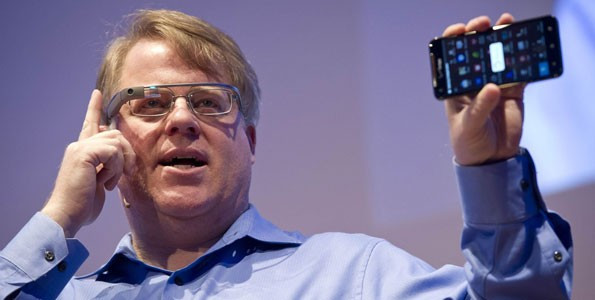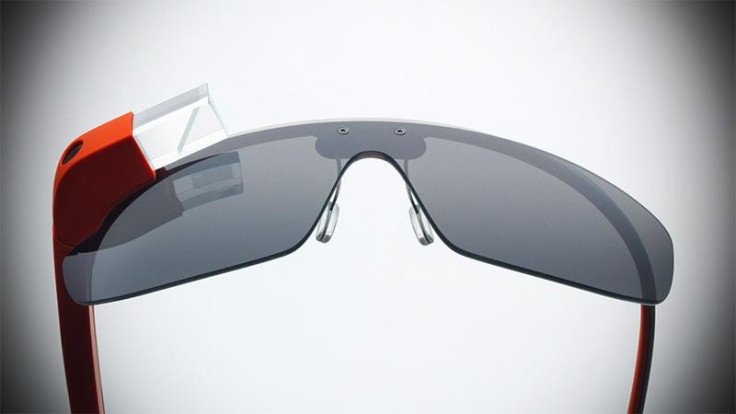Robert Scoble: Google Glass is Just the Beginning of Wearable Tech Revolution
Google Glass is the start of a wearable technology revolution that will see us each carry 100 sensors in five years' time, all monitoring us and connecting to our cars, homes, the internet and each other.

This is the ultra-connected future predicted by Robert Scoble, the American technology journalist, who has used Google Glass for the last two months and claims he will never live another day without it.
Speaking to IBTimes UK, Scoble said: "There's a whole revolution coming. In five years you're going to be wearing 100 sensors and that's quite exciting...if you think of billions of people with 100 sensors, then cars with sensors and your home is going to have 30 or 40."
Not to be confused with the rambling predictions of an Orwellian future, Scoble's vision is one shared by Google, Nike, Apple, Fitbit, Pebble, hosting company Rackspace and others, all hoping for a thriving network of connections between devices monitoring our movement, health and fitness, location and social interactions.
Must Read: Google Glass Explorer Edition: First Impressions
Looking like someone straight out of science fiction, Scoble is wearing his treasured Google Glass over a regular pair of glasses. His grey model isn't as obvious as the blue and orange versions Google makes, but there's still no getting away from how much they stand out - the "fashion cost" as he calls it.
"I think this is like the Apple II," Scoble said. "It's an expensive product and it's a new product, but it's a product that's going to kick off 20 years of wearables and I don't think we're going to know what this product means fully for 20 years."
Like the Apple II computer which was released in 1977, Glass comes with very basic software, a limited set of features, a high price tag and a heavy reliance on developers creating applications to demonstrate what it can do.
"Just like the Apple II, the utility is going to come from apps that are written for this thing. The built-in features are okay and really change your expectations of what the internet is and what technology does for you; but there's only seven things it does and now we're waiting for the thousand other apps. Developers are very excited about this, they see that there's a business opportunity here."

Controversial
Developers may well be excited - 2,000 of them bought early prototypes of Glass for $1,500 (£980) each - but widespread concerns over privacy and Glass's discreet camera have provided early challenges.
Scoble said: "Out of all the products I have seen in my lifetime, it's one of the most controversial. People are really thrilled with it on one end, but also scared of it on the other. It's a fun product to wear in the street and talk about."
But is Glass fun specifically because it is controversial? "A little bit, absolutely. But I like new things, I always have. I was the first person to use a credit card in Starbucks in Paulo Alto and they gave me sh*t for that, for holding up the queue while they figured out how to use the new machine. I like that, I like trying to push boundaries.
20 years
"It took 20 years to get from the Apple II to the MacBook Pro in my bag and I think it's going to be the same with Glass, and over the next 20 years we're going to discover new things. Different competitors will push the industry forward in different ways. Google is clearly holding back a bit because of privacy, but more because of government regulation concerns.
"If they freak everybody out with a new product that's really futuristic then they're going to get regulation problems."
A group of US congressmen recently wrote to Google CEO Larry Page to express their concerns about Glass. Despite this, Scoble claims the reaction from people who see him wearing Glass is almost entirely positive.
"I'm blown away by how many normal people said they'd buy this thing. Like my son's school teacher - I was blown away by that. There's a lot of awareness of this product already, so by playing it up and making it controversial a lot of people on the streets know what it is and are interested in it."
Future lies
Tying together data collected by Glass, exercise monitors like Nike+ FuelBand and Fitbit, and sensors monitoring heart and brain activity is where Scoble and Rackspace believes the future will be.
A survey by the hosting company revealed that a third of 4,000 British and American participants would allow data collected from such devices to be shared with a health service like the NHS, and 46% of Brits said wearable gadgets had increased their self-confidence.
Glass is having a difficult birth, as would any product that creates global headlines both positive and negative a year before it goes on sale; but we must remember that Glass is currently a prototype owned by just 2,000 people and changes will be made.
Google has already moved to ban facial recognition with glass, a porn app was immediately removed after going live earlier this week, and we can expect this behaviour to continue until Google, governments and consumers are mostly happy with the finished product.
For now, Glass is a big, bold step into the unknown for Google; a step monitored closely by Apple, Microsoft and others who don't want to be caught off-guard when a balance between privacy and openness is reached and the revolution takes hold just as Scoble expects it to.
© Copyright IBTimes 2025. All rights reserved.






















